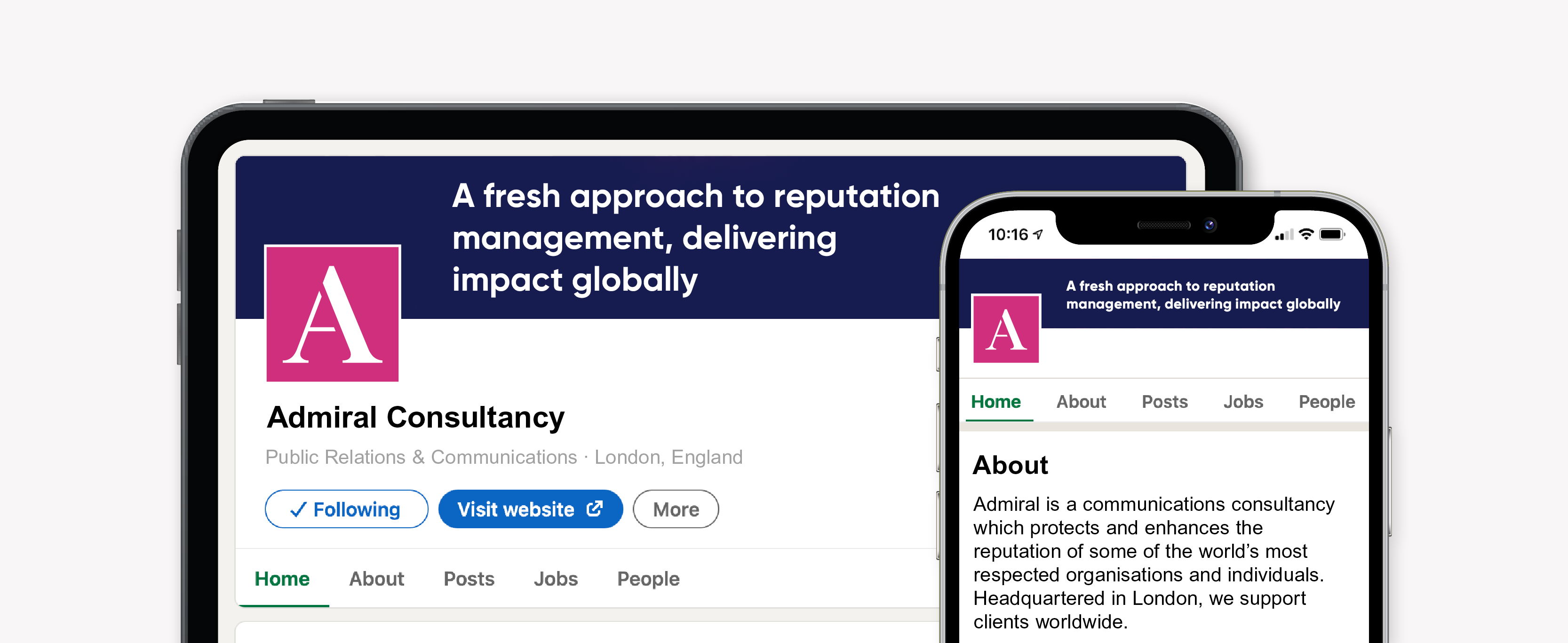
Oliver Chesher, director of Admiral PR and Marketing recently wrote a guest blogged for www.hotel-magazine.co.uk discussing the effectiveness of blogging for your business.
Arguably one of the most powerful social media tools is blogging. Derived from the term ‘web-log’, a blog is simply a website, or section of a site, that is kept regularly updated with content its audiences might find interesting, such as news and views, video, pictures and sound and with which people can interact by commenting, sharing or enquiring.
At first, consumer brands leapt onto the idea of blogging because it allowed them to project a human, spontaneous and friendly face and voice for their business. Nowadays, all sorts of companies are doing it for the same reason; after all, whether your customers are the general public or procurement departments, people want to do business with people.
For that very reason, many organisations might think, ‘Sounds great, we’ll give it to the youngsters in marketing and let them get on with it’. But savvier business people have now learned, as proved by the early-adopters, that there is a harder, measurable commercial outcome at stake. Put simply, if you blog effectively, you’ll drive people to your website, which means sales. So what does effective blogging entail?
Overcome the inertia and dive in
It isn’t expensive to create a blog. Software such as WordPress is free, and a PR or digital agency can quickly customise it for you and install it within your own website. And keeping it up to date isn’t hard either, especially if one or two of your team are willing to get creative, or you have a good agency working with you.
If you’re starting from scratch, at first you’ll naturally be talking to an audience of zero, which feels weird, but stick at it. Once your blog starts filling up, your network of readers and followers will grow, and so will your enthusiasm in talking to them.
Think about your content
Too many companies treat their blogs as just another boring news feed, only updating whenever they’ve got a press release out. Who wants to read that? Think about what your customers and prospects might actually be out there searching for, not just what you want to tell them. ‘Interruption marketing’, such as an ad popping up and telling people to buy, is dying. ‘Content marketing’ is what blogging is all about.
This means sharing something informative, educational, funny, useful; something people will come looking for, keep coming back to, and want to share with their friends and contacts. In the hotel business you will never be short of content. Here are some ideas:
- Interesting characters who’ve stayed with you
- Interesting events you’ve hosted or have coming up
- Menu ideas
- Celebrity sightings
- Video diaries of staff
- Interior design mood boards
The cleverest bloggers also know that, even on days when they’re short of ideas, you can still blog about what other people are blogging about. Seen something in the news or on another blog that you like, agree with or have an opinion on? Link to it on your blog, and leave a comment on the site where you found it. This leads into some more advanced, and more powerful, blogging tricks of the trade.
Build and grow your network
The real skill is to use your blog to measurably boost your appearance in internet search results, and grow your network of followers and readers.
First of all, make sure your blog has a good range of ‘share’ buttons built in. If your readers have the opportunity to share content they like with just one click, for example, ‘Like’ on Facebook, ‘Share’ on Twitter, ‘Comment’ on LinkedIn, or any of the many other online sharing platforms, your content will spread by ripple-effect. Every time someone ‘likes’ something you’ve said on Facebook, that’s basically a free advertisement to all their friends.
Secondly, make sure you stand a better chance of casual searchers finding you. Think of the search terms your prospective customer might use. ‘Hotel’ is too generic and will bring up millions of results. But the name of your location, or something more specific to you such as ’boutique’ or ‘spa’ will narrow it down.
If the robots behind Google and other search engines detect these terms on your website, along with the fact that your site is regularly updated as a blog should be, they will automatically place you higher up the rankings. So make sure your content contains these words and phrases, subtly of course, and make sure all your photos, videos and other content are ‘meta tagged’, i.e given appropriate file names for the same reason. All that is part of what’s known as on-site SEO (Search Engine Optimisation). Important, but the real power is in my final recommendation.
In-bound links
Search engines will rank you as a seriously important and influential site if there are links into your site from elsewhere on the internet. The more the better. And this is where good old-fashioned PR comes in. Engage with other bloggers, editors and other influencers online. Comment on their blogs, offer them guest content, share stuff they might want to share. If another blogger links to you, your searchability goes up. If a national tabloid website links to you, you rocket up.
A blog should be engaging and enjoyable to read, but its popularity is only a soft measure of success. A good blog can directly lead to real, tangible, commercial results.
